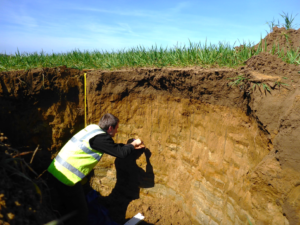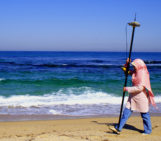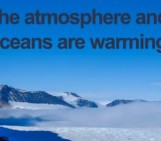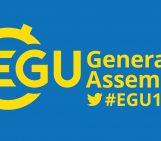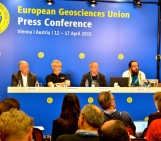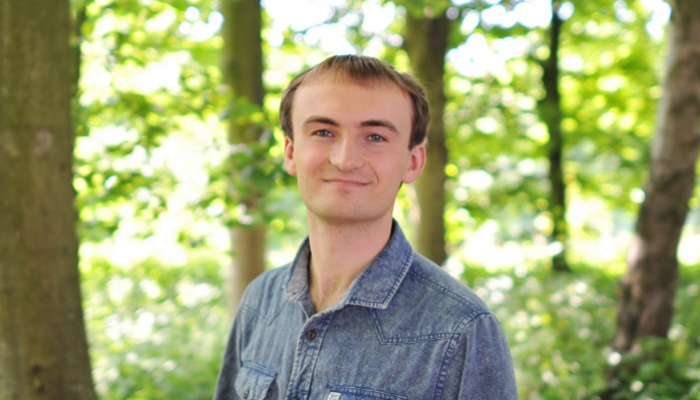
Hello Dan. Thank you for agreeing to this interview! Before we dig deeper, could you tell our readers about yourself and your career background in soil science?
Absolutely, Simon, thank you so much for inviting me to this interview. Well, one of my earliest memories is being in the garden, ripping up the grass to poke my fingers into the soil beneath. That curiosity has fuelled a life-long passion to understand our soils ever since.
I studied Geography at Royal Holloway (University of London). There wasn’t much in the way of soil, but for my dissertation I set up my own experimental allotment plot, grew about 1000 crops, and studied how this affected soil erodibility. I obtained a Doctorate at Lancaster University, studying the rates at which soils form, and understanding how soils develop from so-called ‘soil parent materials’ (e.g. bedrock). As my PhD concluded, I realized I had more questions than answers, and those questions formed the foundation of a 75th Anniversary Fellowship at Cranfield University.
Four years on, I am still at Cranfield as a Lecturer in Soil Formation. If soil science was a hospital, I guess you’d find me in the maternity unit! My research is about understanding how, where, and how fast soils form, as well as the materials that form them.
Congratulations on becoming the new Union-level early career scientist (ECS) representative! Could you tell our readers what ECS representatives like yourself do for EGU and our ECS community?
I am privileged to lead what has, for many years, been an increasingly innovative, interconnected, and interdisciplinary community (apologies for the alliteration!) Our early career scientists represent the next generation of world-leading experts in geoscience, many of whom will be tasked with some of the grandest and most pressing challenges we have ever faced as a scientific community. It is imperative that we nurture this next generation: support their growth and development as scientists, encourage their engagement with geoscience as a whole, listen and learn about the barriers they face both professionally and personally, and aspire to resolve as many of these as possible.
Our flagship event is, of course, the General Assembly – an event in which we convene many of the Short Courses, Great Debates, Townhall meetings, and ECS Forum events – but ECS representatives contribute significantly throughout the rest of the year as well. We champion early career research on blogs, organize and host online webinars and peer-to-peer “Campfire” events , and arrange training courses and summer schools to ensure that we continuously address the specific needs and interests of the community.
What is your vision for your term as Union-level ECS rep?
Over the past year, we have made significant progress behind the scenes in reorganizing several cogs in our EGU ECS machine to ensure that we, as ECS representatives, are best placed to listen to and deliver on the needs of the community. This has involved establishing four ECS working groups on the themes of (i) outreach and communication; (ii) activities and impact; (iii) life career wellness; and (iv) equality diversity and inclusion.
My main responsibility this year is to ensure that we deliver on that vision. I’d also like to think innovatively about how we invest in ECS in more interdisciplinary activities, such as blogs, campfires, and training events. I do have some other things up my sleeve, but I also want to dedicate time to really listen to our wonderful ECS community and capture their thoughts and ideas.
You are also passionate about science communication and outreach, having been featured on radio and television, and you were recently the recipient of a public engagement project grant provided by EGU. What advice do you have for those looking to improve how they communicate their science?
Articulating our science is one task, but ensuring what we communicate is intelligible to our audience is a grander and more important priority. In the past, that has often involved communicating to a representative sample group so that we can hone the language we use to meet a certain level of understanding. Indeed, there are many courses which tutor scientists in the art – and it is an art, I believe – of writing or speaking to a particular stakeholder group, whether that may be other scientists, policy makers, land managers, the media, business and industry, or the public as a whole.
I think one of the best things we can do in geoscience is to involve our target audience at the very start of our projects because then you have the opportunity to co-design the research to ensure the outcomes are fit for purpose. It’s a win-win: as a geoscientist, you are able to take your audience on a journey from project conception to completion, which means they are already listening to you when you eventually have findings to share. It’s also a win for them; by coming on board towards the start, your stakeholders are able to garner a behind-the-scenes insight into the methodologies used, the rationale behind some of the decisions, and by using this process as a learning opportunity, they are more likely to be able to use the outcomes to influence their own decision making, and that of others.
Looking back, what have you found rewarding from your time volunteering for EGU so far?
I have been fortunate to be involved with the EGU for many years now, initially serving as the co-representative for the Soil System Science Division, then progressing to become a representative, and most recently, over the past year, as the Deputy Union-level ECS Representative.
Each passing year, I am continuously motivated and inspired by the unwavering passion within the ECS community – a fervour not only for answering intriguing scientific inquiries but also for making geoscience a more inviting, welcoming, and safe space in which to work. Over time, I’ve come to realize that the most powerful currency within the ECS community is unity – the Union, bringing together early career scientists from all corners of the globe, representing diverse disciplines, perspectives, life experiences, and aspirations. Yet, we are all united in our quest to foster a stronger, healthier, and happier geoscience community.
Please reach out to Dan Evans – you can email him on ecs@egu.eu or find him on X (formerly Twitter) with his handle @DanEvansol. You can also reach out to Dan on LinkedIn: www.linkedin.com/in/DanEvansSoil/

